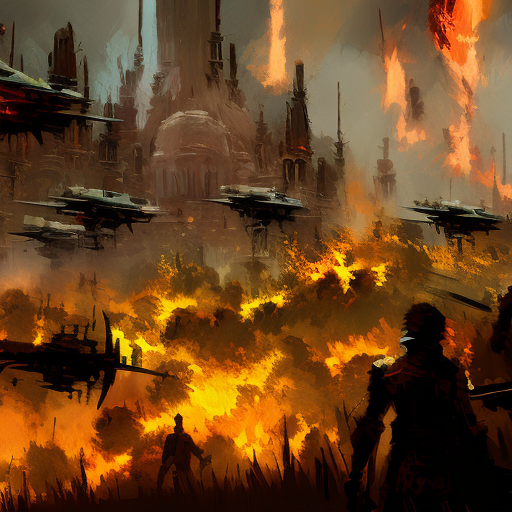The Guns of August: A Summary
One-line summary: “The Guns of August” by Barbara Tuchman is a gripping historical account of the events leading up to World War I, focusing on the crucial first month of the conflict.
In “The Guns of August,” Barbara Tuchman meticulously explores the complex web of political alliances, military strategies, and diplomatic failures that led to the outbreak of World War I. The book primarily focuses on the events of August 1914, providing a detailed narrative of the key players and their decisions during this critical period. Tuchman’s engaging storytelling and thorough research make this book a must-read for anyone interested in understanding the causes and consequences of the Great War.
The Road to War
Tuchman begins by setting the stage for the war, describing the political landscape of Europe in the early 20th century. She delves into the intricate network of alliances and rivalries that existed between the major powers, such as Germany, Austria-Hungary, France, and Russia. The author highlights the growing tensions and rivalries between these nations, as well as the arms race and nationalist fervor that fueled the conflict.
As tensions escalate, Tuchman explores the diplomatic efforts to prevent war, including the last-ditch attempts by diplomats to negotiate a peaceful resolution. However, these efforts ultimately fail, and the book takes us into the heart of the conflict.
The Outbreak of War
“The Guns of August” vividly portrays the initial days of the war, as armies mobilize and battle plans are put into motion. Tuchman provides a detailed account of the German invasion of Belgium, which violated the country’s neutrality and drew Britain into the conflict. She also examines the French and Russian responses to the German aggression, highlighting the strategic decisions made by military leaders and the challenges they faced on the battlefield.
Tuchman’s narrative is filled with vivid descriptions of the chaos and confusion of war, as well as the human cost of the conflict. She brings to life the experiences of soldiers and civilians caught in the crossfire, painting a harrowing picture of the brutality and devastation of World War I.
The Consequences of August
As the book draws to a close, Tuchman reflects on the consequences of the events of August 1914. She examines the missed opportunities for peace and the tragic consequences of the war that followed. Tuchman argues that the decisions made in that crucial month set the stage for the years of bloodshed and suffering that would follow.
Key takeaways from “The Guns of August” include:
- The complex web of alliances and rivalries in Europe set the stage for the outbreak of World War I.
- Diplomatic efforts to prevent war ultimately failed, leading to a rapid escalation of hostilities.
- The initial days of the war were marked by confusion, chaos, and the devastating human cost of conflict.
- The decisions made in August 1914 had far-reaching consequences, shaping the course of the war and its aftermath.
In conclusion, “The Guns of August” is a compelling and comprehensive account of the events leading up to World War I. Tuchman’s meticulous research and engaging storytelling make this book an essential read for anyone seeking to understand the causes and consequences of one of the most significant conflicts in human history.
“So gorgeous was the spectacle on the May morning of 1910 when nine kings rode in the funeral of Edward VII of England that the crowd, waiting in hushed and black-clad awe, could not keep back gasps of admiration. In scarlet and blue and green and purple, three by three the sovereigns rode through the palace gates, with plumed helmets, gold braid, crimson sashes, and jeweled orders flashing in the sun. After them came five heirs apparent, forty more imperial or royal highnesses, seven queens—four dowager and three regnant—and a scattering of special ambassadors from uncrowned countries. Together they represented seventy nations in the greatest assemblage of royalty and rank ever gathered in one place and, of its kind, the last. The muffled tongue of Big Ben tolled nine by the clock as the cortege left the palace, but on history’s clock it was sunset, and the sun of the old world was setting in a dying blaze of splendor never to be seen again.”












